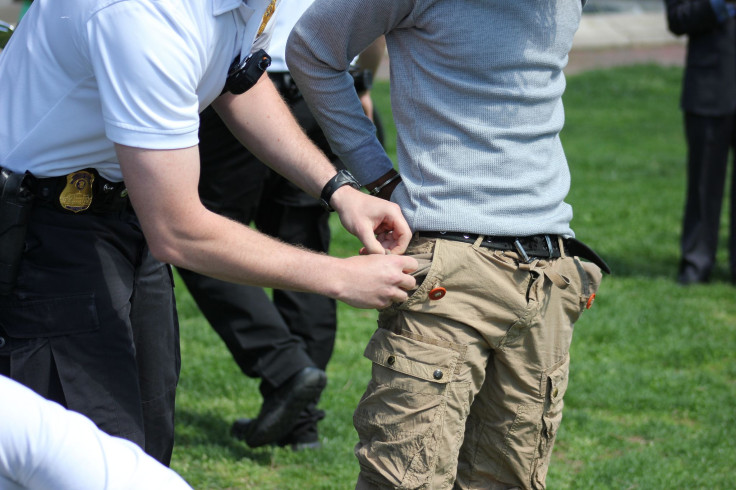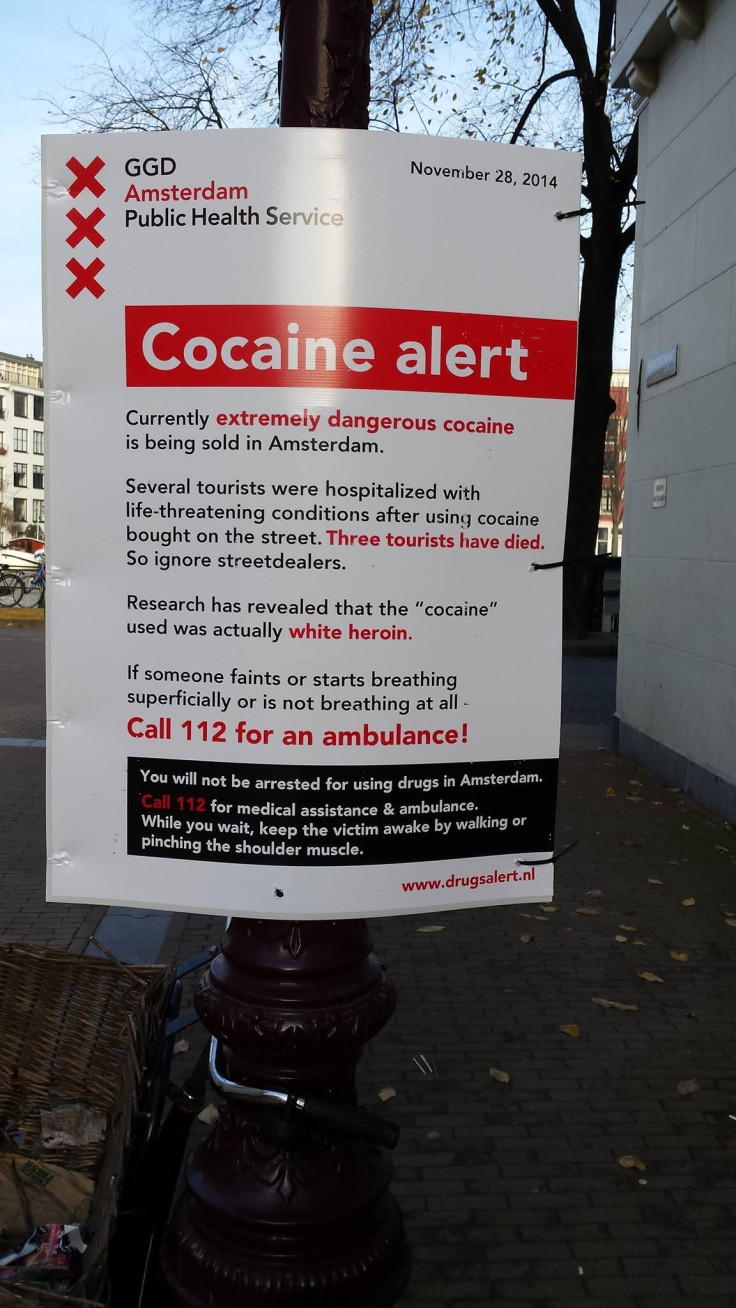Drug Use In Amsterdam Not A Moral Failing, Exposing Cracks In American System

Over the last few days, a photo has been making its way around the Internet that has Americans talking — or, more specifically, grumbling.
We seldom like the truth shoved in our faces, and it’s made even worse when that truth is coming from someone who’s doing something better than us. But the sad reality is that despite our top-tier university systems, gigantic military, and dazzling feats of technological innovation, the United States is staggeringly far behind the rest of the world when it comes to drug policy. And that photo has become yet another reminder how lousy we actually are.

Making It Moral
Worldwide, the U.S. has made a name for itself as a country hell-bent on living large. We reflect the ethos not just in our obesity epidemic and firepower, but in our income inequality and rejection of so-called “lower-class behaviors.” It’s why we moralize drug use. People who smoke marijuana or snort cocaine aren’t just normal people doing unhealthy things, which is how we currently treat alcohol consumption. The current policy sees them as criminals, and the unfortunate truth is that it prevents them from getting help.
“Criminalization certainly sends a message to people with addiction that their problems are not just medical but also, in a sense, morally bad,” Dr. Howard Forman, Addiction Psychiatrist at Montefiore Medical Center, told Medical Daily. “By incarcerating and, in a sense, amputating people with these conditions from society we put up barriers to recovery and reintegration into society at large.”
In a lot of cases, tying people’s behavior to something deeper actually helps them get treatment. When people feel their ailment is legitimized, they may seek out rehabilitative services. Such is the case with alcoholism and Alcoholics Anonymous, even if the occasional beer or glass of wine aren’t so bad.
But, other times, the label has the opposite effect. Early this year, researchers from the University of Richmond and the University of Minnesota found the American Medical Association’s June 2013 reclassification of obesity as a disease, rather than a risk factor for disease, compels people to think of themselves as healthier than when there was no disease label. After reading a passage in which obesity was classified as a disease, obese subjects were less likely to value diet and weight management and later chose a higher-calorie sandwich compared to the other two groups. It was the label, the researchers claimed, that made people see their weight as fixed.
By and large, the same holds true for drug addiction, and if the drug is hard enough, even occasional use. The Amsterdam warning sign reads, “You will not be arrested for using drugs in Amsterdam,” before offering passersby a phone number to call for help. This is because Dutch attitudes toward drug use are lax enough to allow possession and use of up to five grams of marijuana and one gram of cocaine or heroin before police officers issue a punishment.
Playing It Safe
Stateside, the most hopeful trend we see is that attitudes may be shifting. The most recent polls show Americans’ feelings on marijuana still tilt toward legalization, if only by a slim margin. Experts at Gallup, the organization behind the poll, suspect political affiliation is still the best indicator of whether someone favors looser attitudes toward pot. This is a steep decline from last year’s surge to 58 percent approval, following Colorado and Washington’s full legalization, perhaps explained by the slew of controversies in Colorado related to edibles and the harm they pose to children.
Forman suspects culture plays a prevailing role in mitigating this migration. The U.S. is unique for many reasons, but primarily because of its diversity. Countries with a more homogenous population may be inclined to see nationwide drug problems as a collective issue, while here in the U.S. one community pits itself against another. Mending the broken system, where incarceration is the go-to response, and thus unfairly punishes minorities, demands a compromise, Forman said.
“As a drug treatment intervention, we can all agree incarceration has failed miserably,” he said. “What would be optimal would be a system between criminalization and legalization for marijuana.”
He likens it to a speeding ticket, which gets the job done at deterring later offenses, as most people would rather avoid a ticket, but doesn’t need to say anything about the person’s character in the process. “I am firm believer,” he said, “that people should not be judged for their pathology but should be helped toward regaining optimum health.”



























